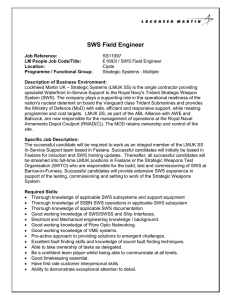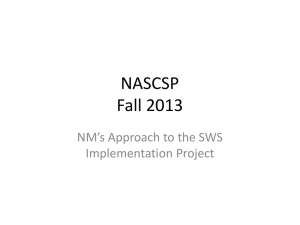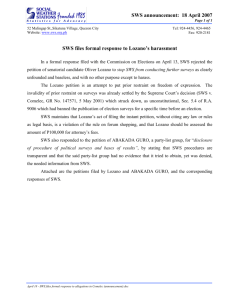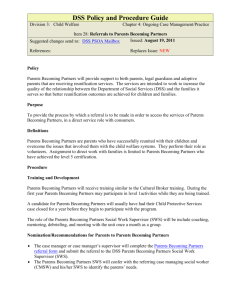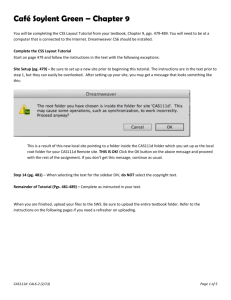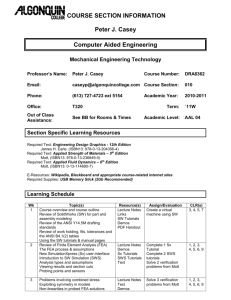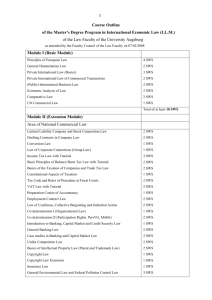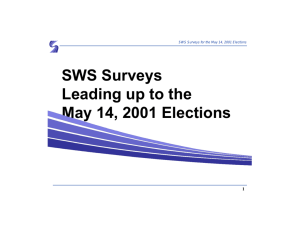Safe Water System
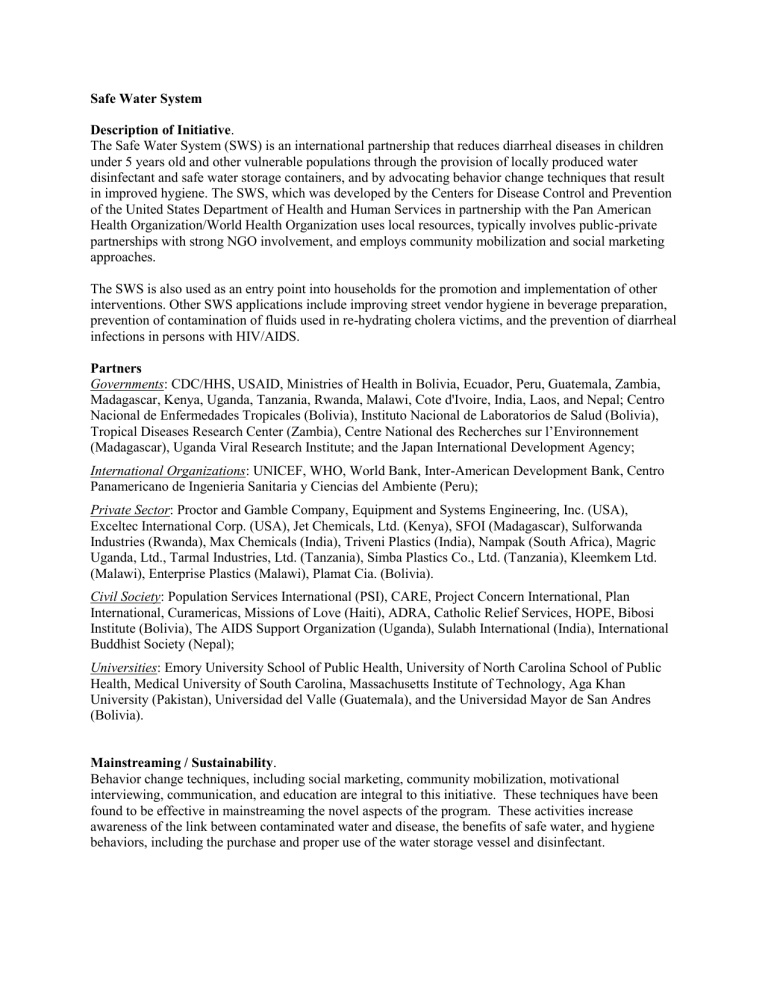
Safe Water System
Description of Initiative .
The Safe Water System (SWS) is an international partnership that reduces diarrheal diseases in children under 5 years old and other vulnerable populations through the provision of locally produced water disinfectant and safe water storage containers, and by advocating behavior change techniques that result in improved hygiene. The SWS, which was developed by the Centers for Disease Control and Prevention of the United States Department of Health and Human Services in partnership with the Pan American
Health Organization/World Health Organization uses local resources, typically involves public-private partnerships with strong NGO involvement, and employs community mobilization and social marketing approaches.
The SWS is also used as an entry point into households for the promotion and implementation of other interventions. Other SWS applications include improving street vendor hygiene in beverage preparation, prevention of contamination of fluids used in re-hydrating cholera victims, and the prevention of diarrheal infections in persons with HIV/AIDS.
Partners
Governments : CDC/HHS, USAID, Ministries of Health in Bolivia, Ecuador, Peru, Guatemala, Zambia,
Madagascar, Kenya, Uganda, Tanzania, Rwanda, Malawi, Cote d'Ivoire, India, Laos, and Nepal; Centro
Nacional de Enfermedades Tropicales (Bolivia), Instituto Nacional de Laboratorios de Salud (Bolivia),
Tropical Diseases Research Center (Zambia), Centre National des Recherches sur l’Environnement
(Madagascar), Uganda Viral Research Institute; and the Japan International Development Agency;
International Organizations : UNICEF, WHO, World Bank, Inter-American Development Bank, Centro
Panamericano de Ingenieria Sanitaria y Ciencias del Ambiente (Peru);
Private Sector : Proctor and Gamble Company, Equipment and Systems Engineering, Inc. (USA),
Exceltec International Corp. (USA), Jet Chemicals, Ltd. (Kenya), SFOI (Madagascar), Sulforwanda
Industries (Rwanda), Max Chemicals (India), Triveni Plastics (India), Nampak (South Africa), Magric
Uganda, Ltd., Tarmal Industries, Ltd. (Tanzania), Simba Plastics Co., Ltd. (Tanzania), Kleemkem Ltd.
(Malawi), Enterprise Plastics (Malawi), Plamat Cia. (Bolivia).
Civil Society : Population Services International (PSI), CARE, Project Concern International, Plan
International, Curamericas, Missions of Love (Haiti), ADRA, Catholic Relief Services, HOPE, Bibosi
Institute (Bolivia), The AIDS Support Organization (Uganda), Sulabh International (India), International
Buddhist Society (Nepal);
Universities : Emory University School of Public Health, University of North Carolina School of Public
Health, Medical University of South Carolina, Massachusetts Institute of Technology, Aga Khan
University (Pakistan), Universidad del Valle (Guatemala), and the Universidad Mayor de San Andres
(Bolivia).
Mainstreaming / Sustainability .
Behavior change techniques, including social marketing, community mobilization, motivational interviewing, communication, and education are integral to this initiative. These techniques have been found to be effective in mainstreaming the novel aspects of the program. These activities increase awareness of the link between contaminated water and disease, the benefits of safe water, and hygiene behaviors, including the purchase and proper use of the water storage vessel and disinfectant.
Replicating the Initiative .
Beginning in 1997, SWS projects have been initiated in Latin America and the Caribbean (Bolivia,
Ecuador, Haiti, and Peru), Africa (Kenya, Madagascar, Malawi, Rwanda, Tanzania, Uganda, and
Zambia), and Asia (India, Laos, Nepal, and Pakistan). Field trials in these three continents have shown a reduction of risk of diarrhea from 30 to 85% following the implementation of SWS projects.
The SWS has been used as an emergency response tool for earthquakes and flooding in Bolivia in 1997 and 1998, cholera epidemics in Madagascar in 2000 and Zambia in 1999, and flooding in Kenya in 2001 and Malawi in 2002.
UNICEF, PSI, and the Centers for Disease Control and Prevention of the United States Department of
Health and Human Services have developed a 20-country initiative to provide access to the SWS that was launched at the World Water Forum in Kyoto in March 2003. Planning is underway for SWS projects in
Afghanistan, Burkina Faso, and Nigeria. CDC will join with WHO, PSI, UNICEF, NGOs, and Ministries in India, Nepal, Bangladesh, and Myanmar to organize an inter-country SWS project that could become a model for regional expansion in other parts of the world.
A Network to Promote Safe Household Water Treatment and Storage has been established through a multi-sector partnership of over 30 organizations, with a secretariat based at the WHO Water, Sanitation, and Health Program.
On the internet: http://www.cdc.gov/safewater/default.htm

